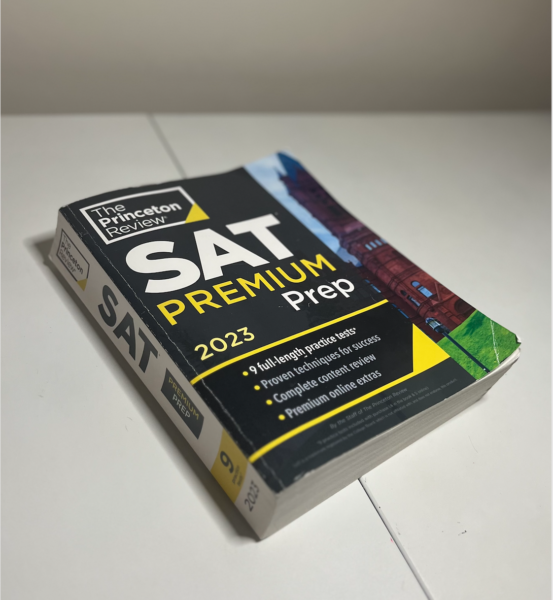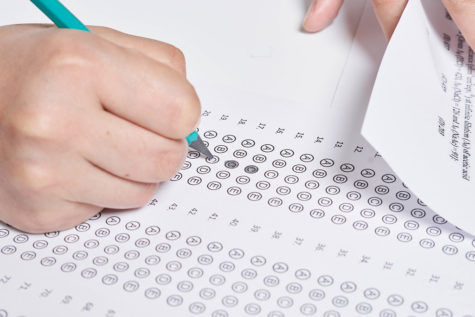Unclear Future for Standardized Tests
COVID-19 has destroyed the plans of even the seemingly impenetrable standardized testing industry. What happens next?
April 13, 2020
The high school experience is different for every student, but there is one inescapable common factor: standardized tests. These tests, ranging from the MCAS, a series of statewide assessments that students must pass in order to graduate, to national tests like the SAT, ACT, and AP exams, seemed indestructible. They were reliable; they were … standard.
COVID-19 changed everything.
The outbreak prompted Massachusetts governor Charlie Baker to sign into law a bill that will waive MCAS testing this year. Franklin High School’s administration of the March SAT was cancelled just two days before it was set to take place. Soon after came the nationwide cancellation of the April ACT and May SAT by the ACT and College Board, respectively. What are the next steps for these giants of the standardized testing industry, and perhaps more importantly, how will these changes ripple into long-term effects?
Immediate Impacts and Tentative Solutions
The cancelled SAT and ACT have both been rescheduled for dates in June, and at the time of publication, are still set to occur. However, there’s a slim chance these tests will actually take place, since many states have closed schools (testing centers) for the rest of the year.
We are in uncharted waters.
— Mr. Leighton
Both the ACT and College Board have stated that they plan to add more make-up test dates, increase testing capacity, and explore alternative test delivery methods. While information on this topic is currently limited, both companies have hinted at the possibility of remote online testing being implemented by the end of this summer. The College Board has already been developing an online testing program to administer the AP exams, so expanding this program to the SAT would be a logical next step.
The aforementioned AP exams are an outlier in that there is a set action plan for them. For most courses, students will take online, 45-minute exams. These will consist only of free-response questions; there will not be any multiple-choice questions. For course-specific information, click here.
“The new exam format will likely have a different effect on each course,” says FHS APUSH teacher Mr. Leighton. “We are in uncharted waters.”
What Will the Long-Term Effects Be?
Trying to predict the future of standardized testing is akin to peering into a mud-splattered crystal ball. Many colleges, including the massive UC system and the nearby Tufts, are implementing test-optional policies for the graduating classes whose testing schedules were impacting by COVID-19. Will these schools revert to their former policies or will these test-optional policies remain in place?
Standardized tests have come under fire in recent years and many colleges were considering joining the ever-growing list of test-optional schools even before the outbreak. Will this be the straw that pushes them over the edge? Only time will tell.
















